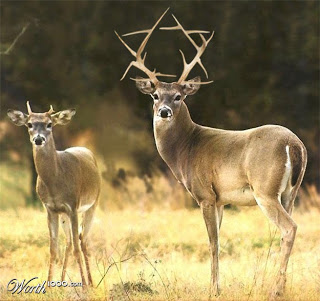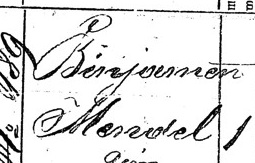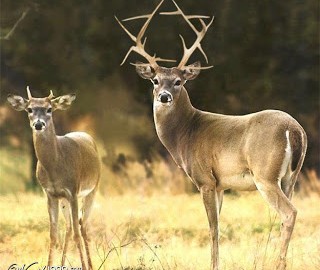This article is a brief look at two common historic Jewish naming patterns, and how they intersect. The first naming pattern is the use of animal names from Hebrew and/or Yiddish. The second pattern is giving two related names to a child.
 |
| Illustration from Worth1000.com |
In some cases when given two names the names constituted a shem kodesh (holy name, used in religious functions) and a kinui (secular name, used in the world at large). When doing genealogical research on your family, you may sometimes run across the shem kodesh (i.e. on an all-Hebrew gravestone) and at another time run into the person’s kinui (i.e. in a newspaper article) and not realize that they are in fact the same person. Some records will, if you’re lucky, record the both names as first and middle names for a person, but sometimes there is only one. Knowing how names are sometimes paired together can help you connect the dots in your research. Another important point is that if you do run across a document that lists both a first and middle name for a Jewish ancestor, they might have only publicly been know by the middle name (which could have been their kinui). Thus if you find a reference to someone whose first name doesn’t match the person you’re looking for, but their middle name does, then you should be taking a closer look at that reference to see if it’s the same person.
Animal associations with Jewish given names probably originate with the blessings given in the Bible by Jacob to his sons before he died. While some sons were associated with other things in the blessings (such as the seashore), five were given animal associations. Let’s stop for a moment to look at the names and their associated animals as they show up in naming patterns even today. These are all listed in Chapter 49 of Genesis:
| Yehuda (Judah) | Lion | “Judah is a lion’s whelp” |
| Issachar | Donkey | “Issachar is a large-boned ass” |
| Dan | Snake | “Dan shall be a serpent in the way” |
| Naftali | Deer | “Naftali is a hind (female deer) let loose” |
| Binyamin (Benjamin) | Wolf | “Benjamin is a wolf that raveneth” |
* Bible quotes from the JPS 1917 Edition online edition from Mechon Mamre
Now, it’s not surprising that Dan and Issachar do not have naming patterns that follow the animals they are associated with, as no one wants to name their child after a snake or a donkey. However, the remaining three are common name associations. Some variations:
Yehuda Aryeh/Leib/Leyb/Loeb (Aryeh is Hebrew and Leib is Yiddish for lion)
Naftali Hirsch/Tzvi (Hirsch is Yiddish and Tzvi Hebrew for deer )
Binyamin Ze’ev/Wolf/Wulf/Volf (Ze’ev is Hebrew and Volf is Yiddish for wolf)
Other animal name pairings exist that do not come directly from the bible. Some common examples include:
Aryeh Leib/Leyb/Loeb (Hebrew and Yiddish forms of lion)
Ze’ev Wolf (Hebrew and Yiddish forms of wolf)
Dov Ber (Hebrew and Yiddish forms of bear)
Tziporah Feiga (Hebrew and Yiddish forms of bird, a woman’s name)
Tzvi Hirsch (Hebrew and Yiddish forms of deer or gazelle)
In addition to these name pairings, there are also other animal names that are used, which include:
Ayelet/Ayala (modern female names based on Hebrew word for a deer)
Deborah (Hebrew for bee)
Rachel (Hebrew for young lamb)
Yael (modern female name based on Hebrew word for an ibex)
Yonah (Hebrew for dove, generally a male name)
It’s also worth noting that many name pairs existed that had nothing to do with animals. Some examples include:
Asher Anshel (Anshel is Yiddish form of Asher, derived from Hebrew word for happy and blessed)
Esther Malka (Queen Esther, Malka being the Hebrew word for a queen)
Menachem Mendel (Hebrew and Yiddish words meaning comfort)
Shlomo Zalman (Zalman is Yiddish form of Shlomo, derived from Hebrew word for peace, Shalom)
You might recognize that the name pair Menachem Mendel is still commonly used among Lubavitcher chassidim, as that was the name of the seventh (and as of now, last) Lubavitcher Rebbe, Rabbi Menachem Mendel Schneerson, who passed away in 1994.
 |
| Name on Polish birth certificate from 1888 |
Of course, just because you find one side of these pairs does not mean the other side will be the same. This is not a rule, just a common pattern. In my own tree there is a Binyamin Mendel, for example, which in many references shows up as just Mendel. If you only used the above you might think his first name was Menachem, which would be wrong. If you only knew his first name was Binyamin you might thing his kinui was Wolf, but you would also be wrong. At the very least recognize when you hear a name of someone you are researching, especially when used in a casual framework, that the name may legally have been their middle name and not their first name.

The common pairing of Shraga Feivel is also interesting in the usage of two Yiddish names both alluding to fire.